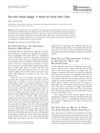Sterol Intermediates of Cholesterol Biosynthesis Inhibit Hair Growth and Trigger an Innate Immune Response in Cicatricial Alopecia
June 2012
in “
PLOS ONE
”

TLDR Cholesterol-related compounds can stop hair growth and cause inflammation in a type of scarring hair loss.
The study from 2012 explored the connection between cholesterol biosynthesis intermediates and primary cicatricial alopecia (PCA), a type of hair loss disorder characterized by inflammation and scarring. It was found that these intermediates can inhibit hair growth and induce an inflammatory response in hair follicle cells. The research showed that genes involved in cholesterol biosynthesis were downregulated in PCA patients, while genes related to innate and adaptive immune responses were upregulated. Treatment with cholesterol biosynthesis inhibitors or precursors led to increased expression of pro-inflammatory genes in human hair follicle cells and in mouse skin, which resulted in inhibited hair growth and increased macrophage infiltration. The study involved 15 PCA patients and 10 healthy individuals for gene expression analysis, and also included samples from 6 affected and 5 unaffected scalp samples for LPP, and 3 affected and 3 unaffected scalp samples each for CCCA, FFA, and TF. These findings suggest that sterol intermediates may contribute to the inflammation seen in PCA and could be significant for future treatment approaches.









